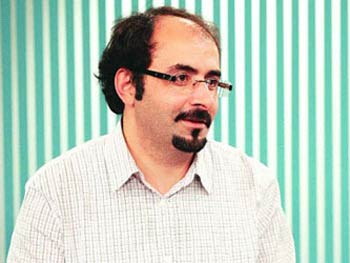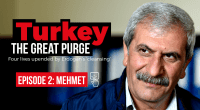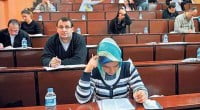Ahmet Şık’s book and Ergenekon’s media campaign (3)

Date posted: January 18, 2012
Emre Uslu, Sunday January 1, 2012
In a previous article I examined the media campaign against the Ergenekon trials and discussed Ahmet Şık.
As I mentioned, the impact of Şık’s arrest was exaggerated because he was allegedly writing a book criticizing the Gülen movement’s influence in the police force, and his arrest was to prevent this book from being published.
Many intellectuals truly believed this campaign when the prosecutors, in their search for the draft copies of the book, found one at Odatv, and another in the possession of people whom Şık claimed had not received a copy. Şık claims to have had no relations with these individuals.
As expected, banning the publication of Şık’s book created negative reactions and a false image of the prosecution, as if Şık was actually arrested because of his book. At that time I was one of a few journalists who claim that Şık was not arrested because of his book, but because the information he originally provided was inconsistent with the story he told the judge. He claimed that he did not know certain people but there is evidence that he may have known, and had relations with, Ergenekon suspects.
The Pro-Ergenekon network found a window of opportunity to argue that Şık was arrested because of his book, and successfully brought international attention to the story. Şık’s book has become a symbol of the Ergenekon trials and proved that the Ergenekon case is nothing but a trial to put AKP opposition behind bars; as if Şık’s book would reveal all the dirty laundry of the AKP, the Gülen movement and the police force. In fact there is nothing new in the book that had not been discussed by other authors previously. Nevertheless, Şık’s book was leaked to the internet, where millions of copies were downloaded.
A few months ago Şık’s book was published and now it is on bookstore shelves, but there are no calls to have it banned. I think those who complained that Şık was arrested because of his book need to explain, especially to their western audiences, why was the publisher not also put behind bars. Forget about the publisher being sued; why wouldn’t they share with their western audiences some of the secrets that are claimed to be revealed in the book?
Either they cannot share this information or they cannot explain why the publisher was not sued. The book is on the shelves, in fact it is one of the best sellers. The prosecution was not really about the book, and they have run a successful PR campaign to obscure the truth. Simply put, the Pro-Ergenekon camp used the book as a flag to spread their words and deceive their audiences in the West. This is another simple fact about which Western audiences should be aware regarding the pro-Ergenekon campaign.
For those who do not follow Turkish politics closely, I will make some generalizations. One should to know that there is no grand vision in Turkish political culture, no major issue to be fought. Turks base their arguments in order to win an emplacement, not the whole battle. Once they win an emplacement they present the situation as if they won the whole war.
A similar strategy has been implemented throughout the Ergenekon trial. Şık’s book was a war to win time, rather than present the whole Ergenekon trial as if it were in fact a plot against AKP opposition.
Moreover, Turkish political fights are timely. Rather than fighting to win the war, Turks fight to win some time. This strategy is also used in international relations and domestic politics. The pro-Ergenekon network fights to win time. As Şık’s case has shown us, they won time but not the case. But since they won the media campaign by portraying the author as someone who was arrested for his book, no one bothers to ask why nothing will happen to the publisher and the book.
Source: Today’s Zaman http://www.todayszaman.com/columnist-267347-ahmet-siks-book-and-ergenekons-media-campaign-3.html
Tags: Defamation of Hizmet | Ergenekon | Turkey |
























